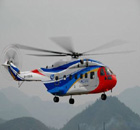Top Biz News
HSBC buys China's bank stocks
(Agencies)
Updated: 2010-03-19 11:14
 |
Large Medium Small |
Non-performing loans related to project financing won't become a problem until 2012, said Mandy Chan, investment director of equities at Halbis, part of HSBC Global Asset, which oversees $416 billion worldwide.
"We are concerned about local financing platforms, high gearing, and asset quality, but we don't see project-financing related NPLs as a problem until two years later," Chan said in an interview in Hong Kong.
China's banks doled out a combined 9.59 trillion yuan ($1.4 trillion) in new loans last year, helping the government engineer a turnaround in the world's third-largest economy. The credit binge drained lenders' capital and sparked concerns about asset bubbles, an increase in bad loans and greater inflation pressure.
China's publicly traded banks have already raised about 150 billion yuan from bond and share sales since the second half of last year to replenish capital, according to Bloomberg data. Lenders including Bank of China and Bank of Communications have announced plans to raise a further 105 billion yuan.
"We are 'underweight' banks, but after the fundraising plans came out, it turns out that earnings dilution isn't very significant," Chan said. "So once the uncertainties were cleared, we bought some in February. Once the overhang is gone, they'll start to perform." She declined to name specific companies.
S&P says banks sound
Chan's view echoed that of Standard & Poor's Ratings Services, which said today that China's banks are financially strong enough to withstand the pressure on profits as bad loans increase. Banks' lending may expand 20 percent this year after a 30 percent increase in 2009, the rating company said today. Standard & Poor's expects the soured debt to remain less than 10 percent of total advances for the next two years.
Chan manages the Hong Kong-traded HSBC China Dragon Fund, which invests in Chinese stocks listed in Hong Kong, the Chinese mainland and the US. The fund's price has increased 76 percent in the past year, outperforming the MSCI Hong Kong Index's 66 percent gain, and the MSCI China A Index's 41 percent advance to March 17. Chan also manages the HSBC China Momentum Fund.
China Merchants Bank and Shanghai Pudong Development Bank, both traded in Shanghai, as well as Hong Kong-listed China Life Insurance Co were among HSBC China Dragon Fund's top five holdings, according to the fund's February fact sheet.
Inflationary pressures
Inflation expectations are rising in China, making it more difficult for Premier Wen Jiabao to meet his 3 percent full-year target for price increases and adding to the case for an interest-rate increase. February's consumer price gain of 2.7 percent, the biggest increase in 16 months, was swelled by a weeklong holiday that fuels spending and cost increases.
|
||||
The People's Bank of China will raise interest rates this month or next, according to 11 of 15 economists surveyed by Bloomberg News last week.
In addition to banks, Chan said insurers are in a "resilient" industry that she favors because of the premium growth, and strong margin.
Chan said she also favors China's pharmaceutical stocks. The nation that boasts 20 percent of the world's population only accounts for 2 percent of global healthcare expenditure, she said. Healthcare expenditure in the country will increase sevenfold in a decade, Chan forecast.
Guangzhou Pharmaceutical Co, a Chinese drug wholesaler, rallied 181 percent in the past 12 months in Hong Kong trading, tripled the 60 percent gain in Hang Seng China Enterprises Index. Shenzhen-listed Shandong Dong-E E-Jiao Co, a traditional Chinese medicine maker, jumped 67 percent in that period.













